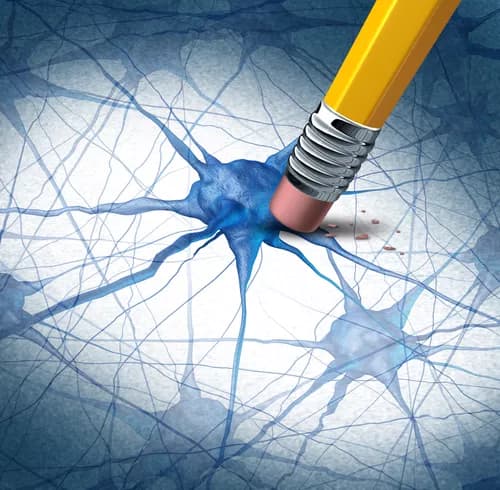
Long-Term Memory Test Could Aid Earlier Alzheimer's Diagnosis
People with Alzheimer's disease could benefit from earlier diagnosis if a long-term memory test combined with a brain scan were carried out, a study suggests.
Scientists say testing memory over a long timescale reveals early deficits in the brain's ability to remember. These are not detected by checks for short-term forgetfulness, which is the current practice for diagnosis.
The study also suggests that a brain scan in combination with a memory test could identify early abnormalities in the brain activity of Alzheimer's patients that would be otherwise undetected.
Researchers say that the type of memory loss revealed by such tests could potentially be reversed by the development of new treatments.
A team at the University of Edinburgh, in collaboration with colleagues in the US, studied long-term memory in young mice, some of which had the equivalent of very early stage Alzheimer's disease, and some of which were healthy.
Scientists taught both groups of mice to locate a hidden platform in a pool filled with water, using signs on the wall of the room to navigate.
The results showed that when tested shortly after the initial task, both groups of mice were able to remember the way to the platform.
However, when tested one week later, the mice in the Alzheimer's group had significantly more difficulty in remembering the route.
Tests revealed that brain activity was normal in both groups of mice at this young age, when no task was involved.
However, the brain activity in the Alzheimer's group was significantly decreased compared with the healthy mice when tested as they tried to remember the way to the platform.
Scientists say the results show that when short-term memory is used to diagnose Alzheimer's disease -- as is currently the case -- it may not reveal the true extent of memory loss at the onset of the condition.
The team says that by testing long-term memory, it may be possible to detect the earliest signs of Alzheimer's disease and offer interventions sooner.
Professor Richard Morris, who led the research at the University of Edinburgh, said: "We recognise that tests with animals must be interpreted with caution, but the use of these genetic models in conjunction with appropriate testing is pointing at an important dimension of early diagnosis."
Dr Vassilios Beglopoulos, of the University of Edinburgh's Centre for Cognitive and Neural Systems, said: "It is widely acknowledged that earlier intervention is needed to effectively treat Alzheimer's disease, and better diagnostic tools are needed for that. We believe that our approach could make a significant contribution."
The above post is reprinted from materials provided by University of Edinburgh. Note: Materials may be edited for content and length.
Disclaimer: DoveMed is not responsible for the adapted accuracy of news releases posted to DoveMed by contributing universities and institutions.
Related Articles
Test Your Knowledge
Asked by users
Related Centers
Related Specialties
Related Physicians
Related Procedures
Related Resources
Join DoveHubs
and connect with fellow professionals

0 Comments
Please log in to post a comment.